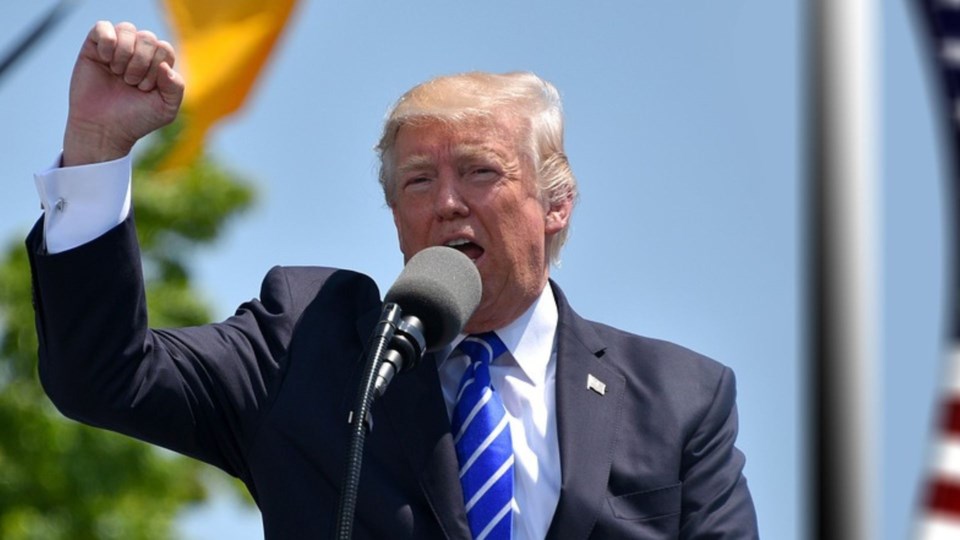Should Donald Trump be re-elected on Tuesday, the U.S. Centers for Disease Control and Prevention (CDC) is . Many Republicans were frustrated by the CDC’s performance during the pandemic. , authored by leading Republicans with ties to Trump, describes the CDC as incompetent and arrogant.
In fact, no matter who wins the United States presidential election on Nov. 5, the Trump administration’s response to the COVID-19 pandemic is a cautionary tale for Canada.
While there is significant and justifiable criticism to be levelled at Trump about his administration’s handling of the pandemic in the early stages, as , the U.S. health system is not designed for an effective coordinated response to a health crisis.
Trump and the CDC
There was clearly a disconnect between Trump and the CDC during the pandemic. For weeks in early 2020, President Trump had described the threat as low risk; he said that the situation was under control in the U.S. and that only a few cases had been reported.
While the president was on a return flight from India, Dr. Nancy Messonnier, director of the National Center for Immunization and Respiratory Diseases at the CDC, . Officials say that .
Throughout the early stages of the pandemic, . The Trump administration was . Disagreements between led to inconsistencies in .
. The agency’s infrastructure . The CDC .
The CDC made key mistakes, . It was and overestimating its ability to design, manufacture and distribute a test quickly.
Rapid responses are crucial during such events, and the early stages of the U.S.’s pandemic response provides salient lessons for Canada, both about its relationship with the U.S. .
Pre-event planning is necessary, but audits and world rankings of emergency preparedness can be unreliable. In 2019, . The pandemic demonstrated that it was not.
Canada needs to establish a strong and independent capacity to assess health threats. Trump’s early handling of the pandemic has been widely criticized, yet the Canadian government’s speaking points in the early stages were the same: . It was only when .
Lessons from the pandemic
Borders can re-assert themselves. Despite decades of global political and economic agreements that saw a freer flow of goods, services and people, many western governments were unable or unwilling to assume the risks associated with letting those from other jurisdictions cross their borders, and as such, imposed strict rules to prevent non-citizens from entering. This aggressive stance was ironic and unforeseen, as during previous public health crises such as the H1N1 flu episode in 2009-10, .
as the global economy shut down in March 2020. Canada’s Minister of Finance Chrystia Freeland Shipment delays, order shortages, trade restrictions and or prevented governments from effectively procuring supplies.
Global manufacturing capabilities for vaccines were below what was needed, with only about a dozen countries able to produce COVID-19 vaccines early on, including the U.S. More than any other country, the U.S. enabled the rapid development and production of the vaccine, highlighting Canada’s considerable dependence on the U.S. Canada has since funded vaccine manufacturing initiatives, .
The adage “When the U.S. sneezes, the world catches a cold” applies nowhere more than in Canada. Should Trump be re-elected, the CDC will likely exist on a smaller budget with a reduced role internationally. This will increase Canadian vulnerabilities.
Whatever the criticisms, the CDC has more capacity and influence than any other health agency in the world. If Canada cannot depend on strong and coordinated response from the U.S. administration during a health crisis, Canada has to be better prepared to adapt. Lessons from the pandemic provide a powerful to-do list.
![]() Kevin Quigley is the Scholarly Director of the MacEachen Institute for Public Policy and Governance, an independent, non-partisan research institute located at Dalhousie University.
Kevin Quigley is the Scholarly Director of the MacEachen Institute for Public Policy and Governance, an independent, non-partisan research institute located at Dalhousie University.




